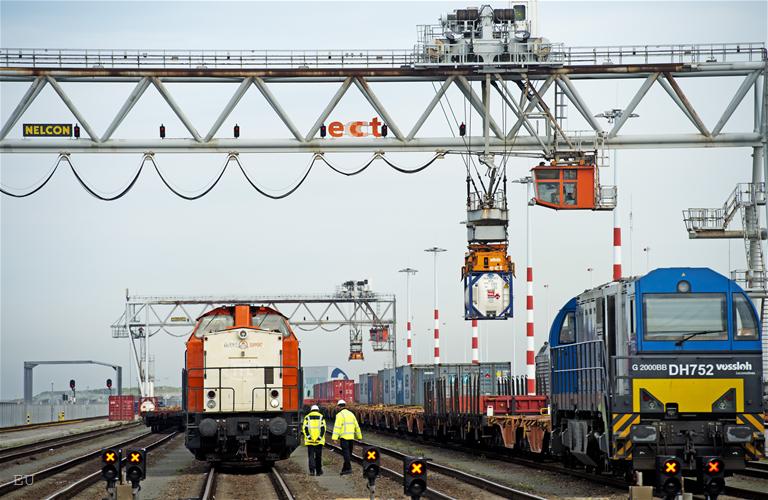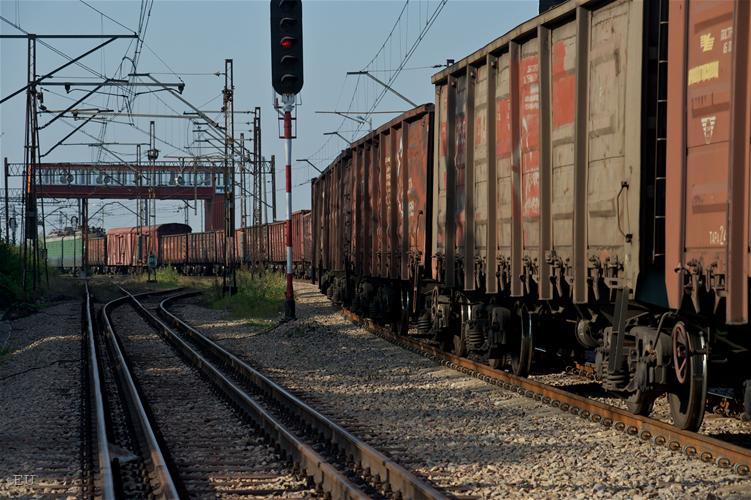European Commission: EU Railways Are in an Inexorable Decline
Zhaneta Kuyumdzhieva, February 8, 2013
 "Europe's railways are approaching a very important junction", said on January 30th Siim Kallas, vice president of the European Commission responsible for transport. They are facing the perspective of stagnation and decline or taking efficient decisions for restructuring of the markets with the aim to encourage innovation and increasing the quality of service. Probably another "package" (fourth in a row) of the Commission is not such an encouraging news for countries like Bulgaria, Spain and Portugal which, regretfully, are moving downward after the junction. In other words - the direction where European railways are headed, the Bulgarians can welcome them there as hosts.
"Europe's railways are approaching a very important junction", said on January 30th Siim Kallas, vice president of the European Commission responsible for transport. They are facing the perspective of stagnation and decline or taking efficient decisions for restructuring of the markets with the aim to encourage innovation and increasing the quality of service. Probably another "package" (fourth in a row) of the Commission is not such an encouraging news for countries like Bulgaria, Spain and Portugal which, regretfully, are moving downward after the junction. In other words - the direction where European railways are headed, the Bulgarians can welcome them there as hosts.
For years in many member states under-investments have created a vicious circle - deterioration of infrastructure and rolling stock (locomotives, passenger carriages and rail motors), which makes railway transport non-attractive, therefore leading again to loss of interest for investments. But it is essential for the functioning of the EU economy, with turnover of 73 billion euros, which is 65% of the turnover of air transport, and ensures employment for some 800 000 people. Railways have a 10% share in the overall freight traffic in Europe with revenues of 13 billion euros, while the number of passenger trips for 12 months is more than 8 billion.
But in many countries rail enterprises are indebted and had to be bailed out, as is the case in Spain, Portugal and Bulgaria. In 2004, the Belgian rail company transferred to the state debt amounting to 7.4 billion euros which was then 2% of Belgium's gross domestic product. In the meantime, it is expected freight transport to increase with 40% by 2030, compared to 2005, and with a little over than 80 percent by 2050.
The new proposals of the Commission are focused on several weak spots in the current practise: bureaucracy, bad management of infrastructure, uncompetitive access to markets for passenger transport and quality of services.
"One Stop Shop" in railway transport
The problem with the complexity of procedures is one of the main obstacles for new participants to enter the market. According to the Commission, if the European Rail Agency issues permissions for carriages and safety certificates (in cooperation with the relevant national safety bodies) to rail enterprises on the basis of applications and with its role enhanced in monitoring national safety bodies, the railway sector will become more attractive for new players and the offered services will be of higher quality.
According to the latest proposal, the European Rail Agency will issue permissions valid for the entire EU to release new vehicles on the market and safety certificates to operators. The procedure currently can take up to 2 years and can cost 6 million euros. Such a change could save 20% of the time for entering of new rail enterprises on the market and 20% of the costs and time for getting a permission for the rolling stock. It is expected this new practise to ensure savings for rail companies of 500 million euros by 2025.
Transparent and efficient management of railway networks
With the aim to ensure the building of network to the interest of all participants and the efficiency of exploitation, the Commission proposes to strengthen the role of the  managers of infrastructure. According to data by national competition bodies in a number of countries, incorrect practises have been found of setting fees for rail companies and using discriminatory actions for newcomers. To avoid such unfair practises by national monopolists the Commission envisages changes to the directive which will make infrastructure managers independent operationally and financially from transport operators dealing with train traffic and will reflect to a larger extent the needs of the market by creating conditions their distribution policies, planning of infrastructure investments, daily exploitation, definition of fees, upgrades, scheduling, etc. to respond to the needs of all the users of the rail infrastructure.
managers of infrastructure. According to data by national competition bodies in a number of countries, incorrect practises have been found of setting fees for rail companies and using discriminatory actions for newcomers. To avoid such unfair practises by national monopolists the Commission envisages changes to the directive which will make infrastructure managers independent operationally and financially from transport operators dealing with train traffic and will reflect to a larger extent the needs of the market by creating conditions their distribution policies, planning of infrastructure investments, daily exploitation, definition of fees, upgrades, scheduling, etc. to respond to the needs of all the users of the rail infrastructure.
The infrastructure managers will be able to use subcontractors - rail companies - which under their control to do certain upgrades or maintenance. For additional guarantee that the networks will be efficiently maintained, the Commission proposes the establishment of a coordination committee to assist the infrastructure managers.
Opening the market of passenger transport
A large part of national domestic passenger markets remain closed. Only Sweden and Britain have opened fully their markets, while those in Germany, Austria, Italy, the Czech Republic and The Netherlands have secured a limited access. The experience of the open markets show improvements in quality and access to services as the satisfaction of passengers is growing every year. In liberalised markets, public procurement leads to savings of 20-30% in some levels of services which can be re-invested to improve them.
The novelties here, according to the proposal by the Commission, are related to the possibility to offer domestic services for railway transport of passengers with the EU: via offering competitive trade services (free access) or via applying under the procedures for public procurement in the railway sector which holds some 90% of train traffic in the EU and will now be subject to obligatory tenders.
According to the Commission proposals, competitive tendering will apply only for contracts above certain thresholds. Such thresholds will be calculated on the basis of kilometres or as a percentage of the overall volume of the passenger transport services envisaged in a contract for public service in every member state to ensure that there will be appropriate participants on the market able to apply. The Commission proposal requires amendments to key legislative acts and their adoption is dependent on endorsement by the European Parliament and national governments.